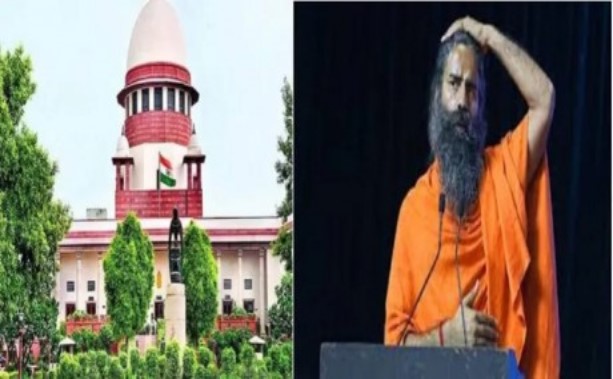

New Delhi : Ahead of a crucial Supreme Court hearing regarding misleading advertisements, Patanjali Ayurved issued an apology in national dailies. However, the court raised concerns about the sincerity and adequacy of the apology, particularly its size and placement in newspapers.
Key Developments
The Supreme Court questioned whether the size of Patanjali’s apology matched the scale of its earlier advertisements promoting its products. Senior Advocate Mukul Rohatgi, representing Ramdev and Balkrishna, stated that a fresh set of apologies had been submitted, emphasizing their publication in 67 newspapers at a cost of ₹10 lakh.
Justices in the bench scrutinized the sincerity of the apology, highlighting discrepancies between the apologies and the extensive advertising campaigns. They emphasized that the court was not swayed by the monetary investment in publishing the apologies.
Responding to a plea seeking a ₹1000 crore fine against the Indian Medical Association (IMA) related to the case, the court expressed skepticism, questioning whether it was a proxy plea.
Ramdev pledged to publish a larger apology in newspapers, prompting the court to adjourn the matter for a week.
Background Context
The controversy stems from Patanjali’s misleading claims about curing diseases such as diabetes and high blood pressure through its products. The Supreme Court previously rejected apologies from Ramdev and Balkrishna, deeming them insincere and inadequate.
Despite assurances from Patanjali’s counsel to refrain from violating advertisement laws, the company faced allegations of continuing to publish misleading advertisements.
The Supreme Court received an anonymous letter highlighting Patanjali’s ongoing dissemination of misleading advertisements, leading to further scrutiny of the company’s actions.
Implications and Future Steps
The Supreme Court’s scrutiny underscores the importance of genuine apologies and accountability, particularly in cases involving public health and consumer trust.
Patanjali’s response to the court’s concerns, including the publication of a larger apology, will be closely monitored in the upcoming proceedings.
The outcome of the case may have broader implications for the regulation of advertisements and the responsibility of corporations to adhere to legal standards and consumer protection laws.